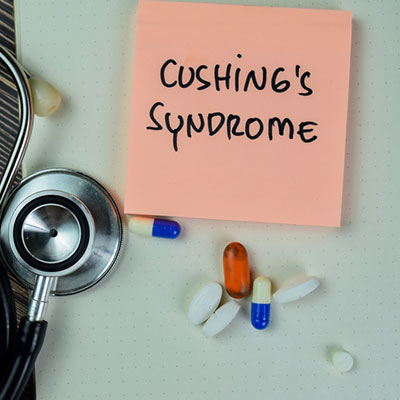Adrenal and Steroid Hormone Disorders Treatment in Vijayawada
Steroid disorders are conditions caused by abnormal levels of steroids, which are hormones produced by the adrenal glands, primarily cortisol, aldosterone, and androgens. These disorders can be classified into those resulting from excessive hormone production, such as Cushing's syndrome, characterized by excess cortisol leading to symptoms like weight gain, high blood pressure, and osteoporosis, and those from insufficient hormone production, like Addison's disease, which causes fatigue, weight loss, low blood pressure, and electrolyte imbalances due to deficient cortisol and aldosterone. Steroid disorders can also include congenital adrenal hyperplasia, a genetic disorder affecting hormone synthesis, and hyperaldosteronism, characterized by excess aldosterone resulting in hypertension and low potassium levels. Diagnosis by Adrenal gland specialist in Vijayawada involves hormonal assays, imaging studies, and sometimes genetic testing, while treatment varies based on the specific disorder, often involving hormone replacement therapy, medications to suppress hormone overproduction, or surgical intervention. These conditions can significantly impact metabolism, immune function, and electrolyte balance, emphasizing the importance of early detection and management.

Abnormalities in steroid:
Steroid disorders, including both excess and deficiency of steroid hormones, manifest prominently through various physical changes in the body. In cases of steroid hormone excess, such as Cushing's syndrome, individuals often develop characteristic features like central obesity, a rounded face ("moon face"), a fatty hump between the shoulders ("buffalo hump"), skin thinning, easy bruising, and purple striae on the abdomen. Muscle weakness, osteoporosis, and hypertension are also common, reflecting the catabolic effects of excess glucocorticoids. Conversely, steroid hormone deficiency, as seen in Addison's disease, results in symptoms like hyperpigmentation of the skin, especially in creases and scars, weight loss, fatigue, hypotension, and muscle weakness, due to inadequate production of cortisol and aldosterone. In disorders involving sex steroids, such as androgen excess, males may develop gynecomastia and testicular atrophy, while females might experience hirsutism, acne, and menstrual irregularities. These physical signs serve as crucial indicators for clinicians to identify underlying steroid imbalances, guiding further diagnostic testing and management. Overall, steroid disorders significantly alter bodily appearance and function, reflecting the vital roles these hormones play in maintaining homeostasis, metabolism, immune responses, and secondary sexual characteristics. Get it treated at Best Hospital for Steroid disorders in Vijayawada, Esha Endocrine Centre.
How are steroid disorders managed?
Managing steroid disorders, including conditions like Addison's disease, Cushing's syndrome, and adrenal insufficiency, requires a comprehensive approach focused on accurate diagnosis, tailored treatment, and ongoing monitoring. For Addison's disease, the primary goal is to replace deficient hormones with glucocorticoids (such as hydrocortisone) and mineralocorticoids (like fludrocortisone), ensuring dose adjustments during stress or illness to prevent adrenal crisis. Cushing's syndrome management depends on its cause; surgical removal of tumors is often primary, supplemented by medications like ketoconazole or metyrapone to inhibit cortisol synthesis if surgery isn't feasible. Corticosteroid therapy in other contexts must be carefully titrated to minimize side effects such as osteoporosis, hypertension, and hyperglycemia. Dr. S. L. Sravya says that regular monitoring of serum cortisol levels, electrolytes, bone density, and metabolic parameters is essential. Patient education is critical, emphasizing adherence to medication regimens, recognizing signs of adrenal crisis, and implementing stress dose adjustments during illness or surgery. Additionally, a multidisciplinary team approach involving endocrinologists, primary care providers, and dieticians enhances patient outcomes. Psychological support may be necessary, as these disorders can significantly impact quality of life. Advances in diagnostic techniques and medications continue to improve management strategies, aiming to restore hormonal balance and prevent complications. Ultimately, personalized treatment plans, vigilant monitoring, and patient-centered education are key to effectively managing steroid disorders and improving patient prognosis.
